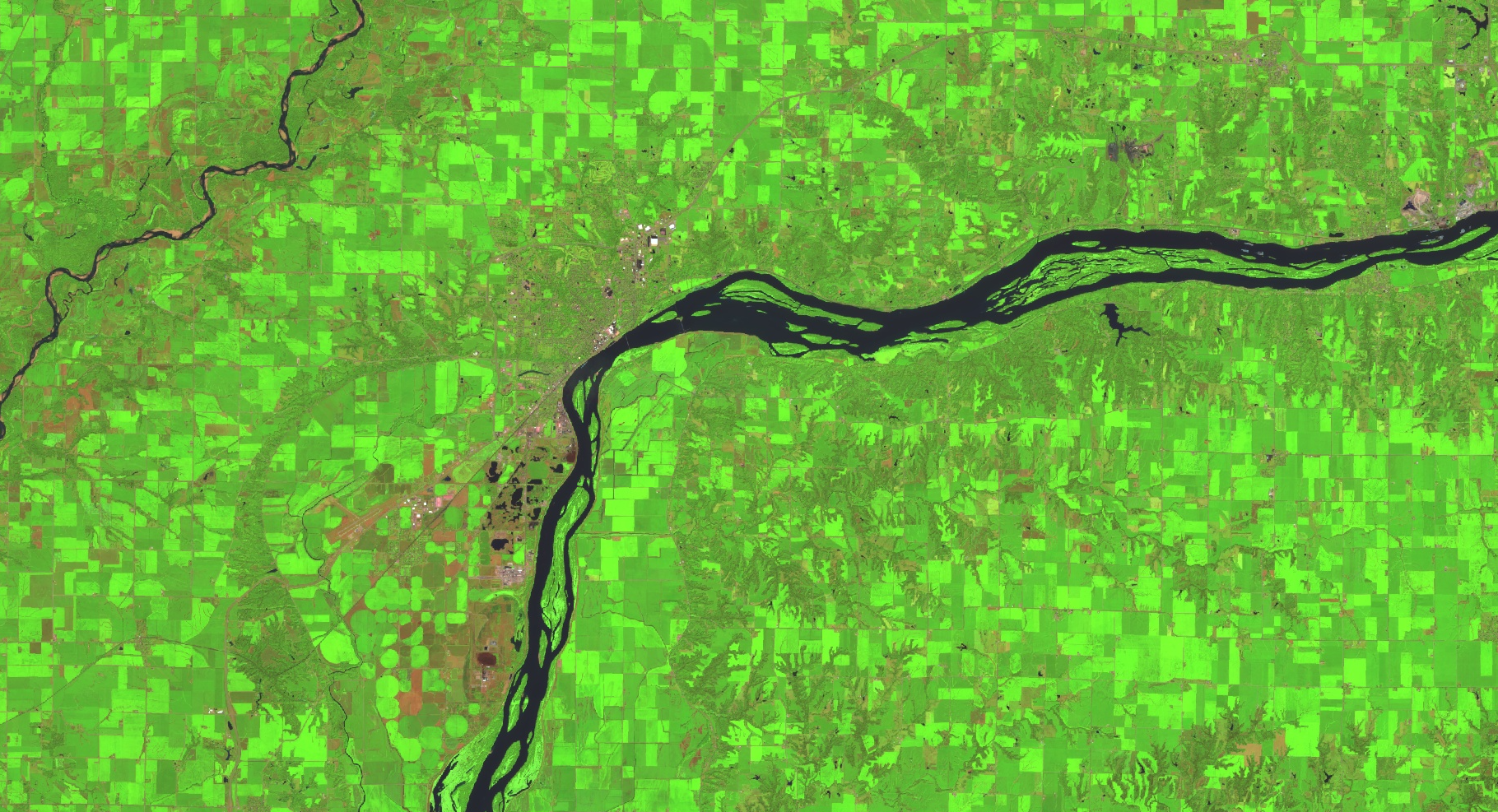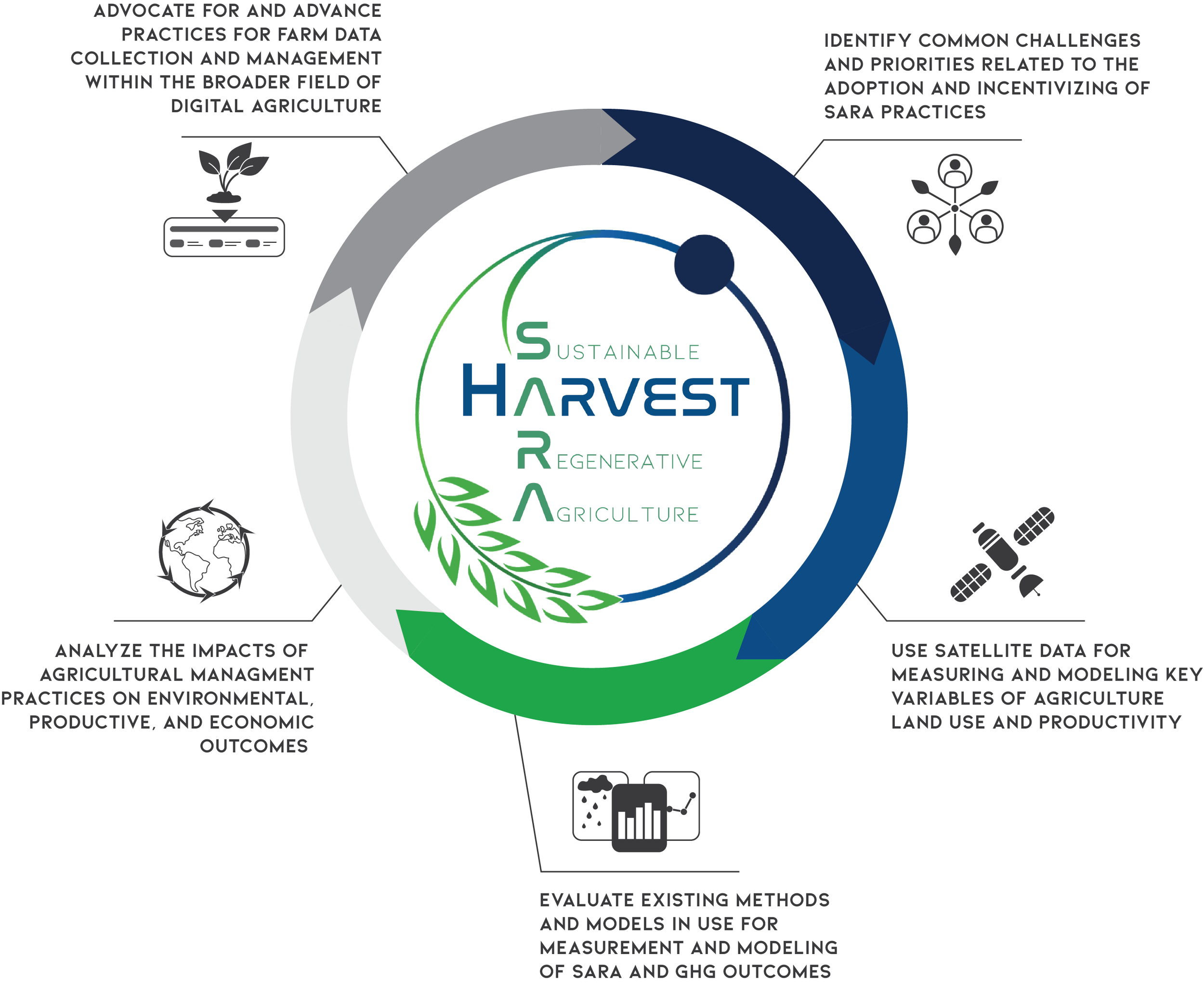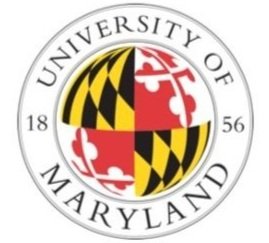Our Mission
Our Mission is to advance global understanding of sustainable and regenerative agriculture practices and outcomes, through the use of satellite data measurements, methods, and models
Our Approach
We serve as a public-good, multi-stakeholder, pre-competitive forum for public researchers and agribusiness to come together. Through a consortium of top scientists in the fields of remote sensing, modeling, soil science, and economics from both the public and private sectors, we advance satellite-enabled methods for measuring and modeling agricultural practice adoption, impacts, and outcomes.
What We Do
Harvest SARA convenes top scientists in the fields of remote sensing, modeling, soil science, and economics, from both the public and private sector, to move our collective understanding of sustainable and regenerative agriculture, and our ability to measure its adoption and impacts, forward.

Insights from Satellites
Satellites can observe both practices and impacts repeatably, objectively, over time, & at scale.
Through advancing methods that utilize artificial intelligence, machine learning, and process-based models to create consistent measuring sticks, we can rapidly expand our knowledge base to make sustainable, regenerative, and climate-smart decisions, sooner.
Harvest SARA is a 501(c)3 funded through philanthropic contributions to the University of Maryland College Park Foundation.
All outcomes serve the public good.






